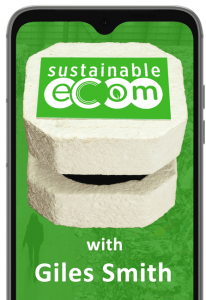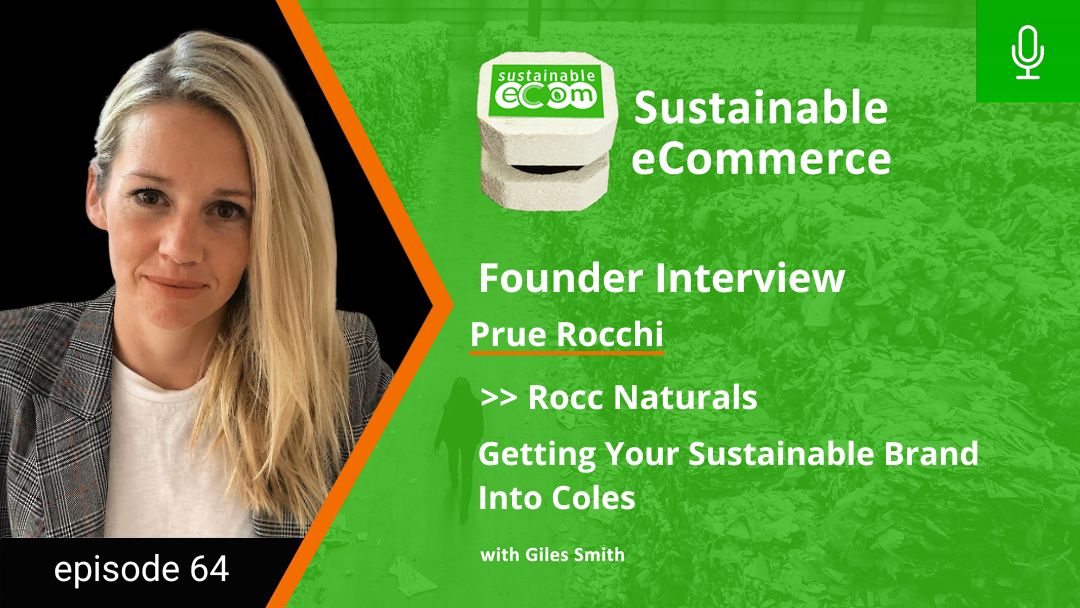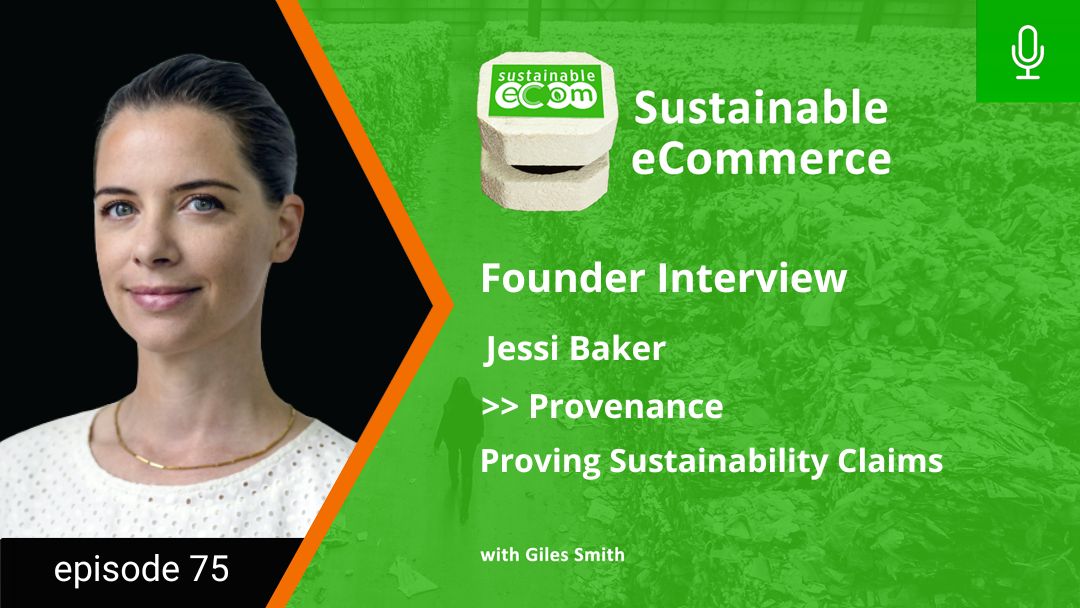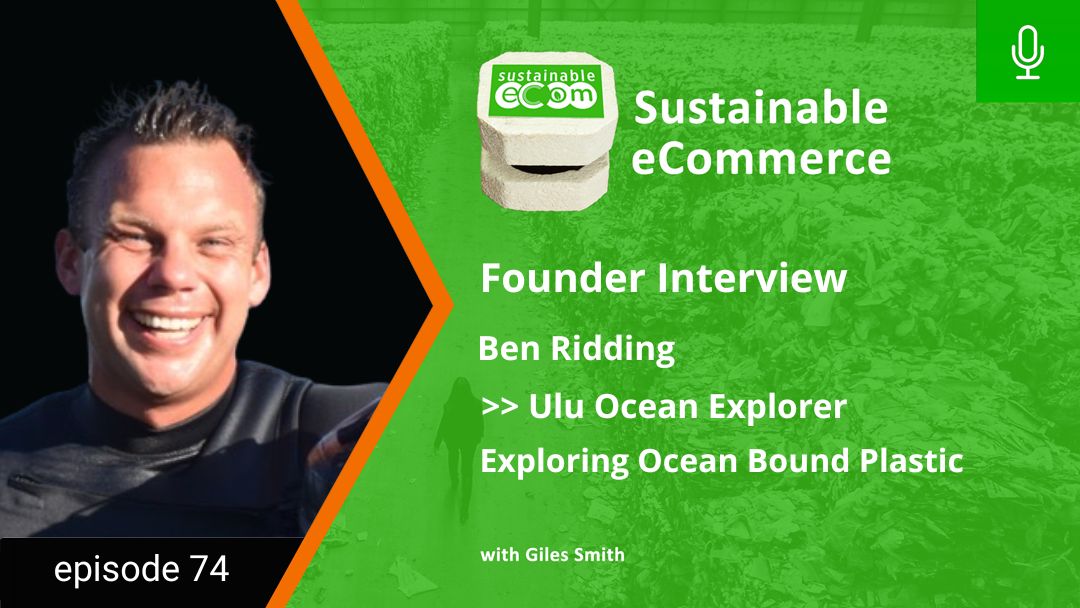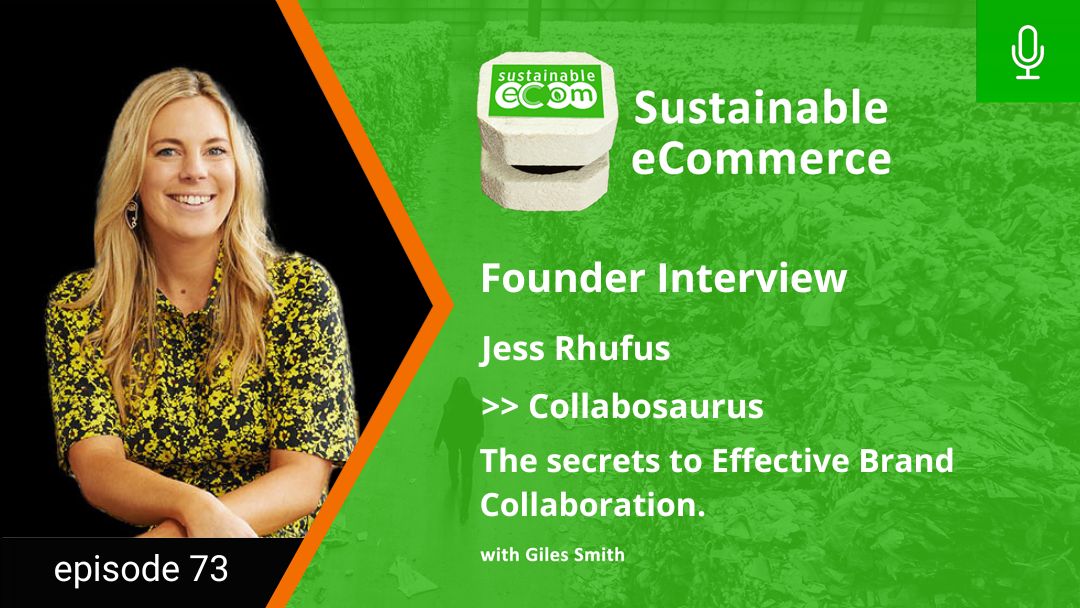Sustainable Ecommerce Podcast Episode 64
Today we’re chatting with the founder of another brand making very deliberate, conscious decisions to reduce their footprint and help their customers live more sustainable lives.
Prue Rocchi is the founder of Rocc Naturals, a dental care brand aiming to make more nutritious toothpaste without the lasting impact on landfill.
In fact every year, over 1.5billion tubes of toothpaste end up in landfill, and being made in a non-recyclable way, there they stay for over 500 years. Rocc has combined a complete reformulation of their paste with biodegradable tubes that break down in just 6 years.
The brand has been on the market for just a couple of years, and quite impressively managed to secure national distribution through Coles in their very first year.
Chatting with founders who think about sustainability just as much as growing their brand is always fascinating, and if getting into the big chains is something on your growth horizon, this episode is definitely one for you!
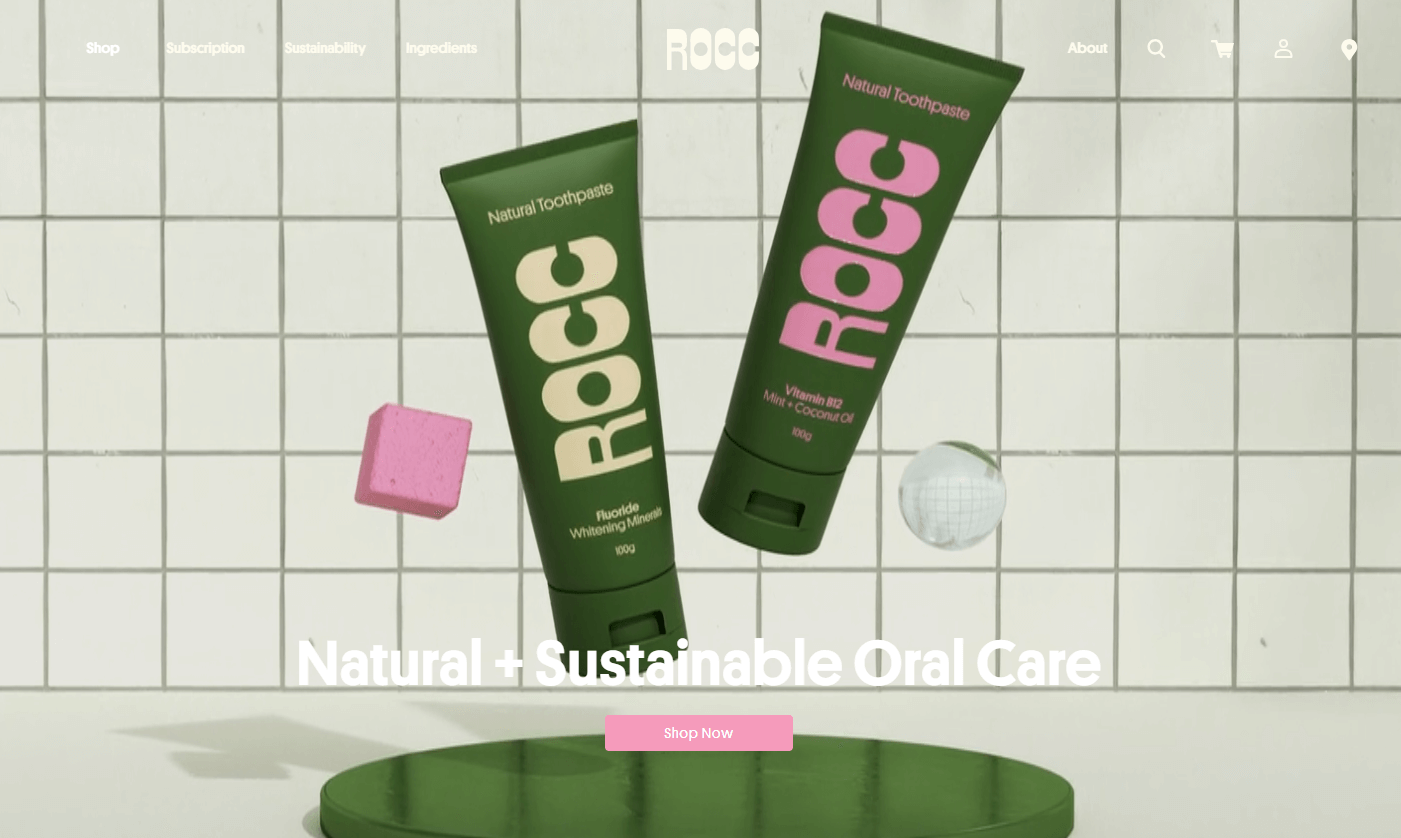
How Rocc Natural Got Started
Prue Rocchi is the founder of Rocc Naturals. She grew up on a farm in rural Victoria, with a strong ethos for protecting the land and a focus on sustainability. On finishing high school, she started several University degrees before completing her undergraduate studies in marketing and PR in the United States, then moving into her first role as a fashion publicist in New York.
After moving back to Melbourne she focused on marketing in the health & wellness space, but the desire to grow her own brand was steadily growing. During her maternity leave, she conceived the idea of filling the gap in toothpaste market for a product that looked nice, was more health conscious and better for the planet. The idea started as an exploration as to whether she could create something with many points of difference, leveraged by modern branding inspired by the likes of Who Gives a Crap.
Prue knew that formulation of the product was going to be key. She wanted to strongly differentiate from the chemical-based toothpastes in most grocery stores, with natural ingredients and a keen eye on sustainability. Experience showed that most organic toothpastes were either too chalky or were like brushing with egg yolk, so ensuring a great teeth cleaning experience was both a great opportunity and a key to the brand’s success. Prue also wanted to make a paste that was more nutritious as well as good for brushing teeth, and having researched ingredients they engaged a professional industrial formulator over in NZ to develop the product.
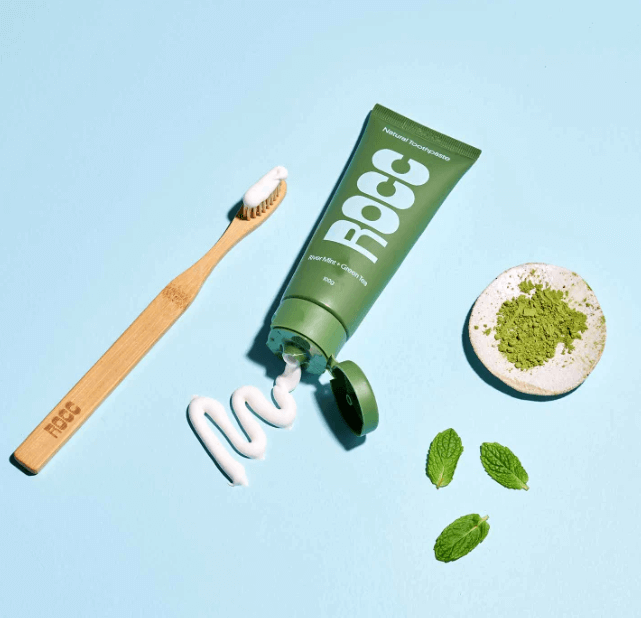
Sustainable Toothpaste Packaging
Most tubes are triple-layered with aluminium foil and plastic, which means they can’t be recycled and all go to landfill where they slowly decompose into microplastics and foil over up to 500 years.
Sourcing sustainable packaging was surprisingly difficult, made harder by conflicting information. They worked with a packaging consultant to find a balance between ease of use for the consumer, production footprint and end of life impact. They eventually settled on biodegradable packaging that will break down in landfill conditions in 6-10 years without breaking down into microplastics. To prove that, their tubes have been independently tested by the Eden Research lab, so that they had actual science behind their claims.
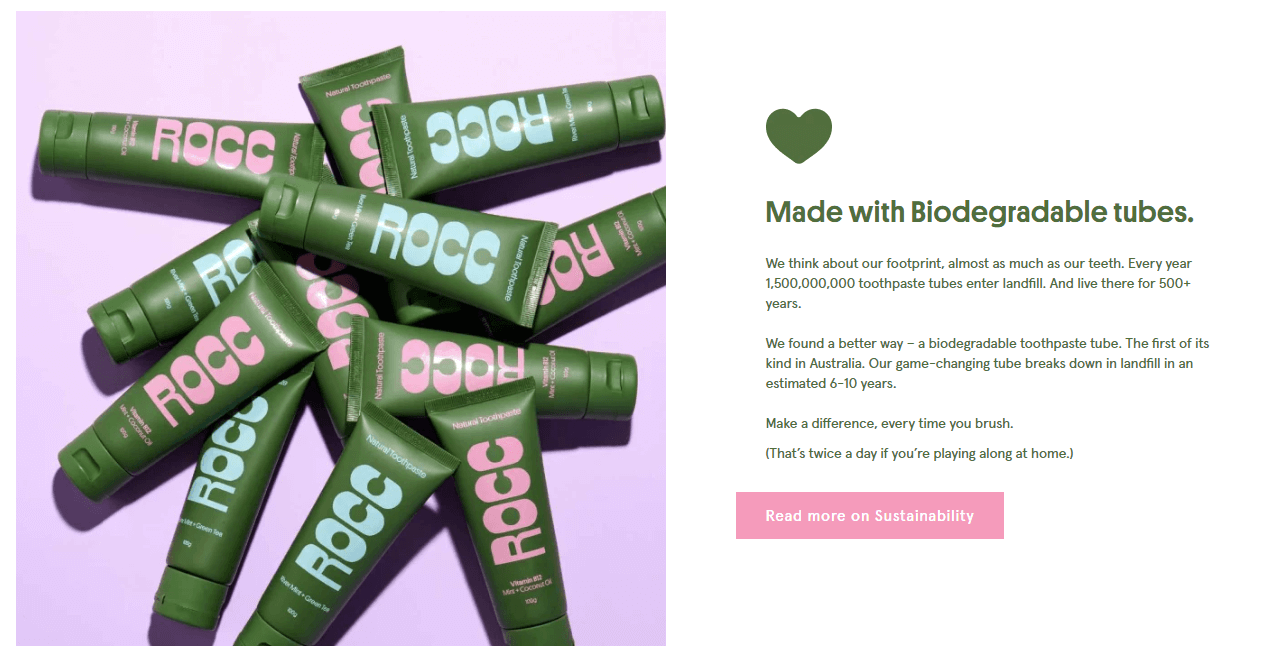
Getting Into Coles
Just 4 months after Rocc launched, they received approval to get all three of their SKUs into Coles! That was not a smooth process, the due date for having stock in-store coming right in the middle of lockdown with shipping delays, and the team had to rustle up some friends to help them take the stock out of the Melbourne port to get it delivered.
They also had to place a huge production order to fulfil the potential Coles deal even before they had approval, which placed the new brand under significant cash pressure.
One job is getting into Coles, the next is to stay stocked there. Your brand has to hit certain sales benchmarks in order to retain your spot, and so especially for a new brand that requires investment in advertising and digital media to raise awareness.
One of the downsides of having stock in Coles has been some cannibalisation of their online store revenue, especially subscriptions due to the convenience of picking the product up at the supermarket rather than waiting for online orders, paying for shipping and managing their subscription.

Making Production Carbon Neutral
Most toothpaste is made in China. For their initial launch the team couldn’t locate a factory that could both design a formulation and then produce the paste in Australia. Luckily they located a factory in New Zealand. Having experiences shipping delays during Covid, they subsequently brought the production on-shore in 2023 and have aligned with a factory that enables them to conduct production Carbon-Neutral.
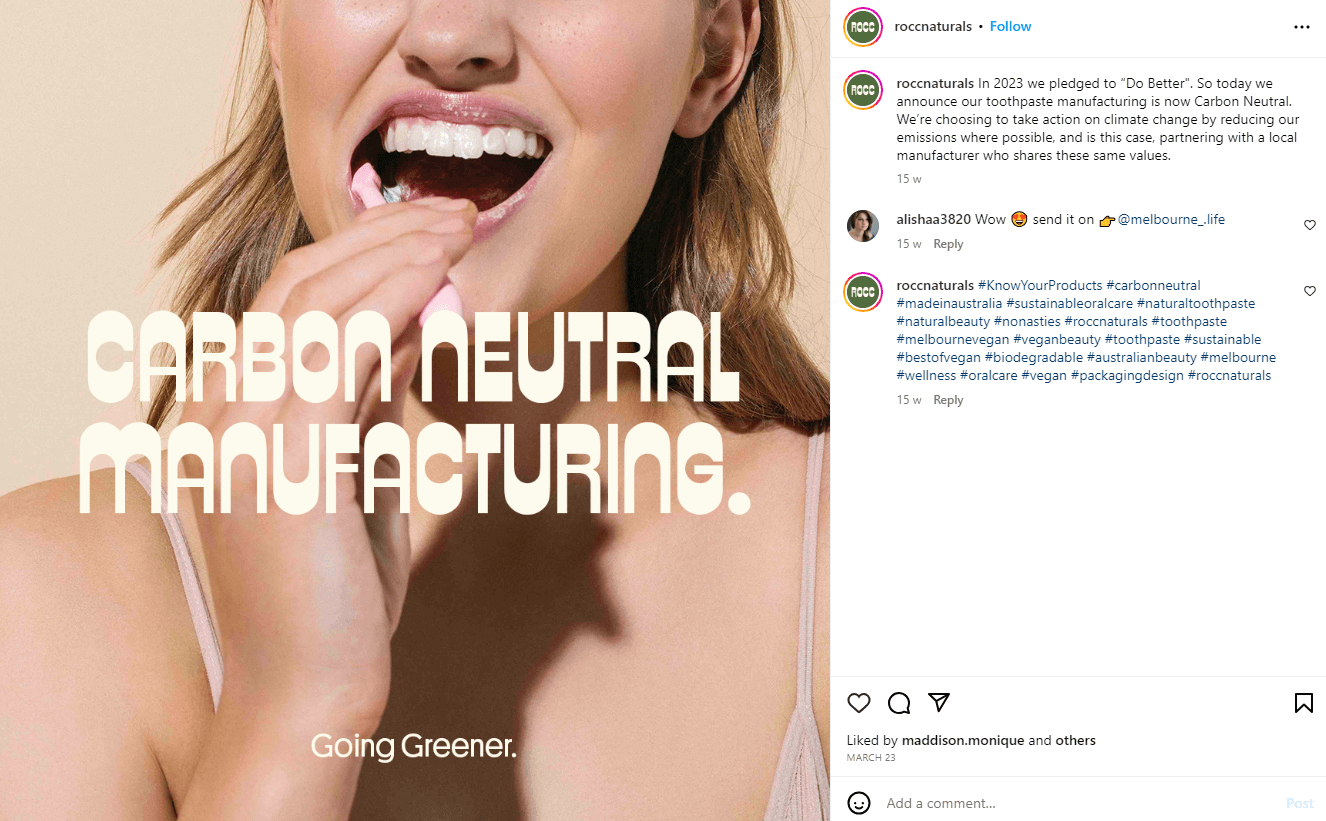
What’s next for Rocc Naturals?
Rocc are now actively engaging with overseas expansion through wholesale and distributors, but taking it slowly and getting lots of advice to try and avoid expensive mistakes. In addition, they continue to explore additional products including things like toothpaste tablets. They maintain a close eye on the sustainability of new products, and abandoned a tooth whitening kit because they were not happy with its footprint.
To try out Rocc Naturals products at Coles or buy online at https://roccnaturals.com.au/
Top Takeouts
Firstly, probably no surprise, but the inventory required to supply nationally is very different to what you’ve been used to with an online brand, even if you do have a network of smaller wholesale customers.
You’ll need to meet that demand and be ready to dispatch as soon as you get the go ahead, and if you don’t get the go ahead, you’re going to be carrying a large amount of excess stock. If there’s a use by date, that could present a challenge.
Of course, if you’re buying up inventory in order to secure a deal, you’re tying up cash – and unlike your 1:1 wholesale agreements or even platforms like Faire and Treyd, Coles pay on 90 day cycles, and you’ll need to supply products at competitive margins. All of that means you’ll need to have a significant cash float available.
As you heard from Prue, getting into Coles is only part of the battle. Once in, you want to stay in. Shelf space is the inventory of all retail outlets, and spot is carefully selected to optimize sales performance.
If your product doesn’t meet their sales targets in-store, at some point it will get pulled. That means you’ll likely need to invest in awareness marketing to drive demand to the store instead of your owned channels.
If you’re running a subscription service for your products, note that you’ll probably see some cannibalisation of that channel due to the superior convenience of buying from the supermarket.
Make sure you put that into your forecasting because returning customers are your most profitable and cashflow-positive source of revenue.





